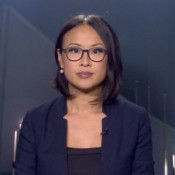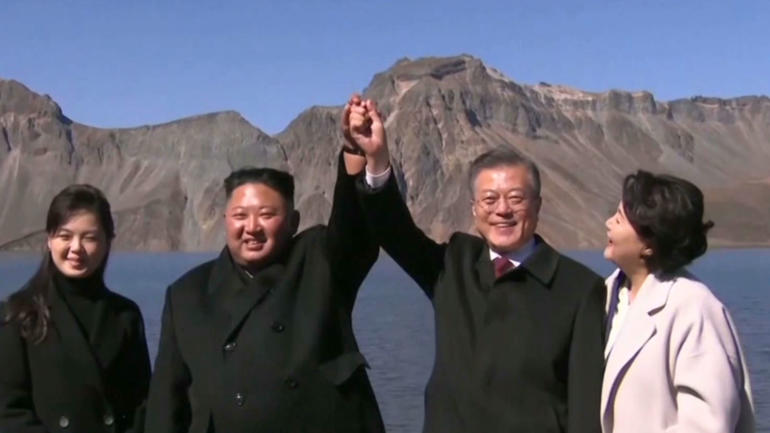The past year has seen big diplomatic strides between Washington, Pyongyang and Seoul, but the ultimate goal of denuclearization is still elusive. CGTN’s Liling Tan explains.
After more than a decade of nuclear weapons and ballistic missile tests, the launch pads and detonation sites in the Democratic People’s Republic of Korea have gone silent… for now.
A bilateral charm offensive is underway, leading to three summits this year between the two Korea with promises of more to come.
Each side stands to gain. The North wants to open its economy to foreign investment and development. The South wants reunification and denuclearization.
“The Koreas have made some real strides in confidence-building and they’re talking about the elimination of a number of posts along the demilitarized zone,” said Stephen Noerper, a Senior Director at the Korea Society. “They’ve already established a liaison office at Kaesong, and the idea of communication more effectively across that formerly fortified border is important…is dramatic.”
Detente between the two Koreas made it possible for Donald Trump and Kim Jong Un to meet in Singapore this June, and Washington wants complete and verifiable denuclearization while Pyongyang wants the security guarantees from Washington.
“They want the suspension or the reduction of sanctions. They want security guarantees from Washington,” said Maria Zeitseva, a Professor of Political Science at Yeshiva University. “They want normalization of relations, and they really want to be seen as a genuine player in international relations. And, the summit with Trump in June was a first step.”
From the Singapore summit, a promising but vague agreement to denuclearize. Pyongyang also returned the remains of American troops who fought in the Korean War, but offered no timetable for destroying its nukes.
“It’s very difficult to discern from the North Korean government what their intentions are – if they’re really honest in terms of denuclearization,” said Michael John Williams, a Professor for International Relations at New York University. “Or, if they’ll continue to use this thaw to their advantage in a positive way for both East and West, but also continue their weapons program on the side.”
At this month’s summit, some momentum. Promises from the North to let inspectors in, and an offer to demolish its primary nuclear weapons complex. That, in exchange for concessions from Washington.
South Korean President Moon Jae-in announced in a joint press conference with Kim Jong-Un on Wednesday that North Korea said it would close a key missile test facility in the presence of “international experts” and potentially destroy its primary nuclear complex if the United States agrees to corresponding measures.
Moscow and Beijing want sanctions on the DPRK eased to reward Pyongyang for opening talks and suspending missile tests, but the U.S. is insisting the sanctions remain in place, as leverage. Washington has also accused Russia of cheating on sanctions, and called China’s provision of aid and other commodities to the DPRK unhelpful.
 CGTN America
CGTN America

